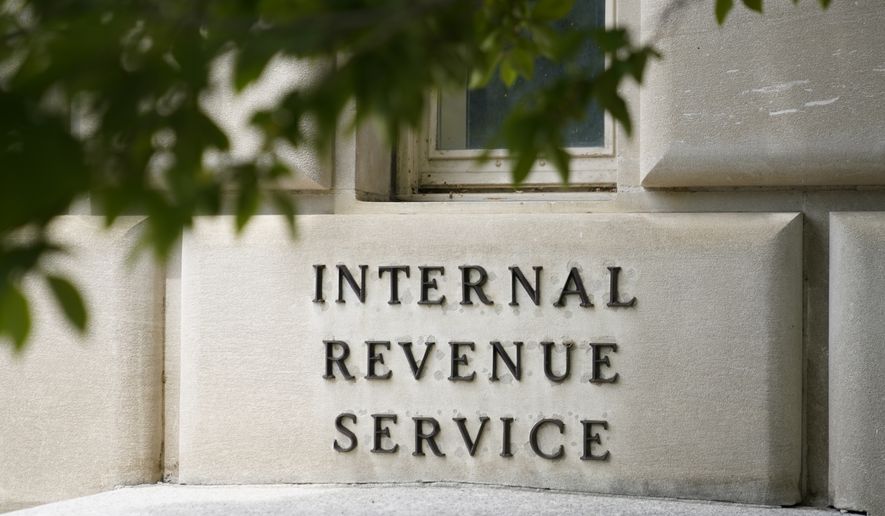More than 42,000 federal employees repeatedly failed to file their taxes with the IRS, according to a new audit that said the government is limited in its ability to punish the cheats.
Known as “federal employee nonfilers,” the cases are considered particularly egregious since they involve those paid by taxpayer money but shirking taxpayer obligations.
But the IRS devotes little effort to targeting federal nonfilers, according to the Treasury Inspector General for Tax Administration. And the law restricts how much information the IRS can share with other federal agencies, so they’re limited in their ability to prod or punish the employees, the audit found.
As of 2021, delinquent federal employees owed $1.5 billion in unpaid taxes.
“Repeatedly not filing a tax return when a taxpayer is required to do so is a brazen form of noncompliance. Federal civilian employees with tax delinquencies have a legal and ethical requirement to be current with their tax obligations,” the inspector general said in the report Thursday.
TIGTA found that tax compliance among federal employees has been trending down in recent years. As recently as 2017, just 108,000 employees were delinquent in filing or paying. But in 2021, that rose to 149,000 cases, out of a federal workforce of 3 million.
That works out to a delinquency rate of about 5%.
More striking were the persistent cheats. The audit found 42,047 employees who missed multiple years of filing or payment over the review period. That works out to about 1.4% of federal employees.
More than 100 employees were delinquent in at least eight years, TIGTA said.
The IRS, in its official response to the report, said the delinquency rates are lower for federal employees than for the public at large, and said its own employees do the best of any agency.
The Postal Service had the most offenders, with more than 9,000 employees who missed at least two years. The Veterans Affairs Department was runner-up with nearly 6,600 employees.
The Defense Department and the service branches combined for roughly 13,000 cases.
Most of the nonfilers were at the low end of the income scale, with earnings under $100,000. Some 738 of them had incomes of $200,000 or more.
The delinquents generally avoid punishment, the inspector general said, though the exact number of cases referred for criminal investigation was redacted in the new report.
And just 28 of the federal nonfilers were slapped with civil penalties.
Lia Colbert, the commissioner of the IRS’ small business and self-employed division, said nearly 80% of the delinquencies the audit found were “resolved” by last September.
She said the division does try to prioritize enforcement against federal employees.
“However, in recent years, severe staffing shortages, the pandemic and challenges in IRS submission processing centers caused a strain on resources,” Ms. Colbert said in the IRS’s response to the audit.
She agreed with most of the inspector general’s recommendations for improvements, but rejected the idea of making referrals to the Justice Department for federal employees who meet certain criteria for delinquency.
Ms. Colbert said the Justice Department won’t accept systematic referrals based only on criteria, so that idea is “not feasible.” And besides, she said willful failure to file is only a misdemeanor and since the average federal delinquent owes less than $10,000, it’s unlikely they’d end up serving a sentence.
“Pursuing a criminal prosecution that ends in minimal or no imprisonment could ultimately have a negative impact on voluntary compliance,” she said.
The inspector general said that meant lots of people were getting away without consequences.
“We identified over 17,000 repeat Federal civilian employee nonfilers who had not filed an income tax return for three or more years. Yet, these employees continued in their Federal jobs, with pay and benefits, without adequate IRS enforcement scrutiny,” the audit concluded.
The inspector general also suggested the IRS urge its overseers at the Treasury Department to ask Congress to amend the law to upgrade willful failure to file to a felony, and to let the IRS share more information with other agencies about their scofflaw employees.
The IRS agreed to prod the Treasury Department on both matters.
• Stephen Dinan can be reached at sdinan@washingtontimes.com.




Please read our comment policy before commenting.